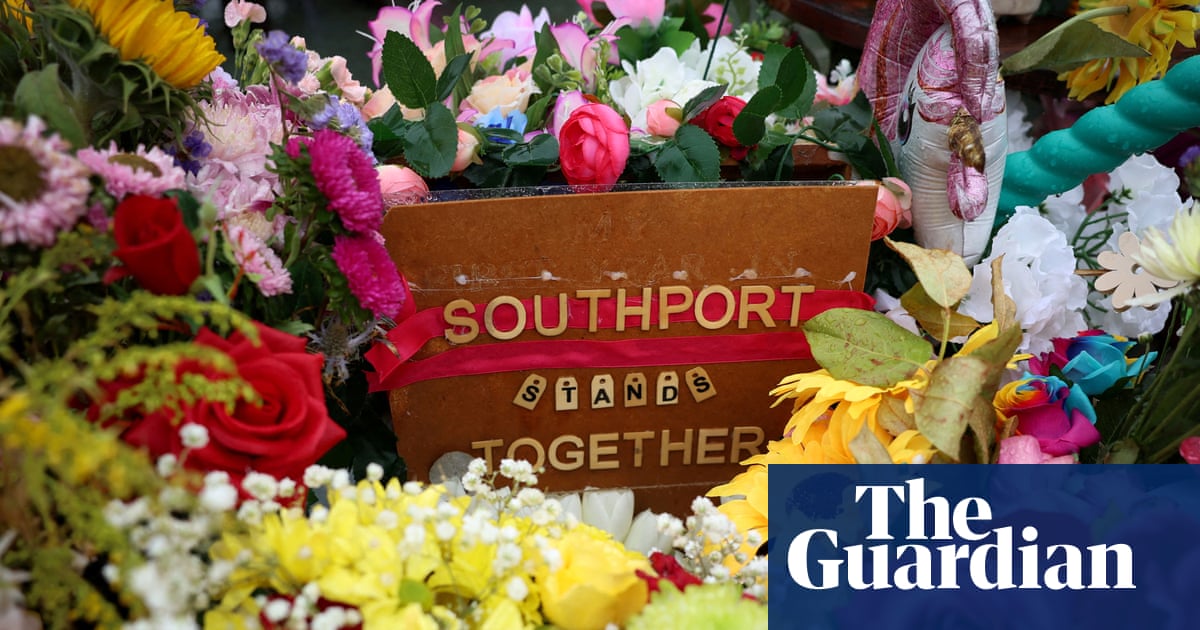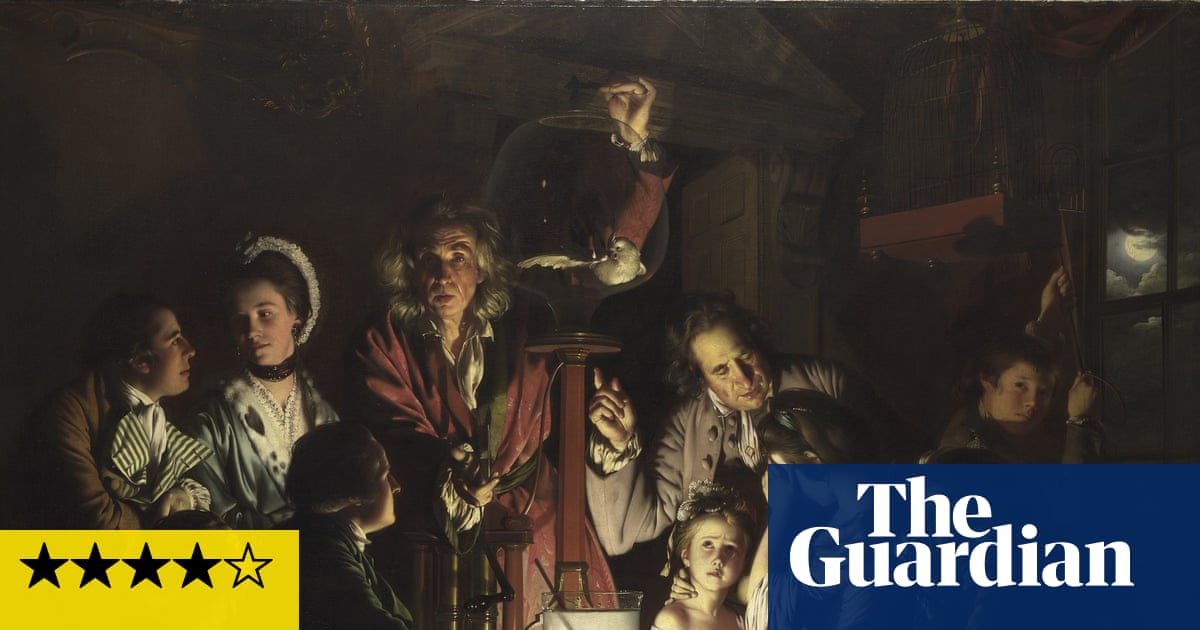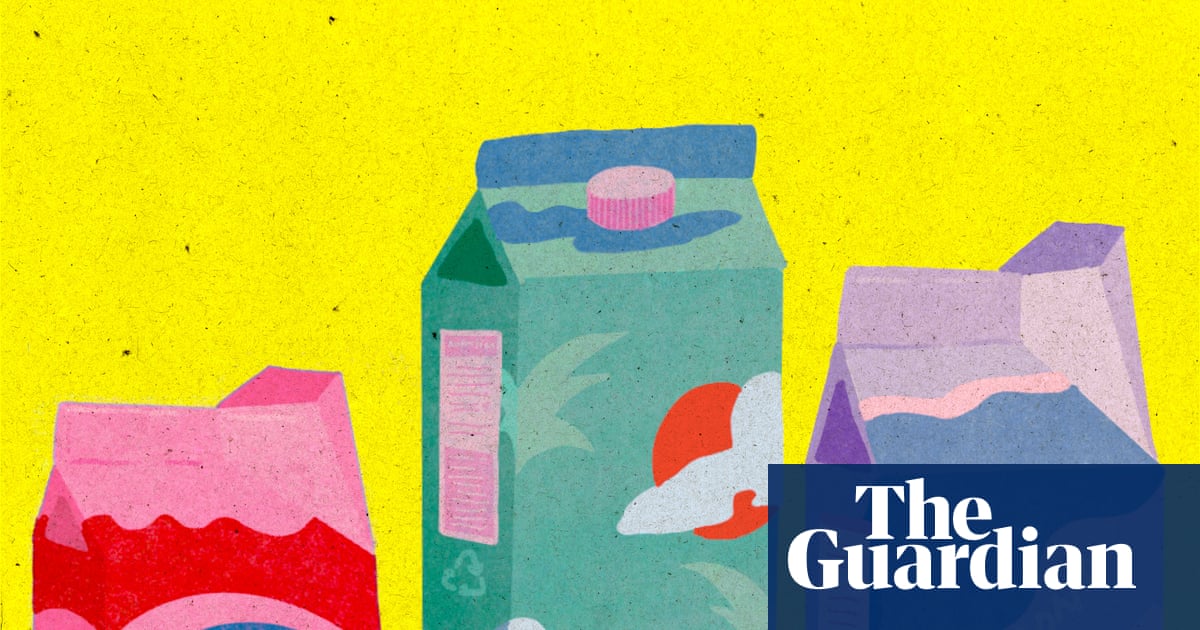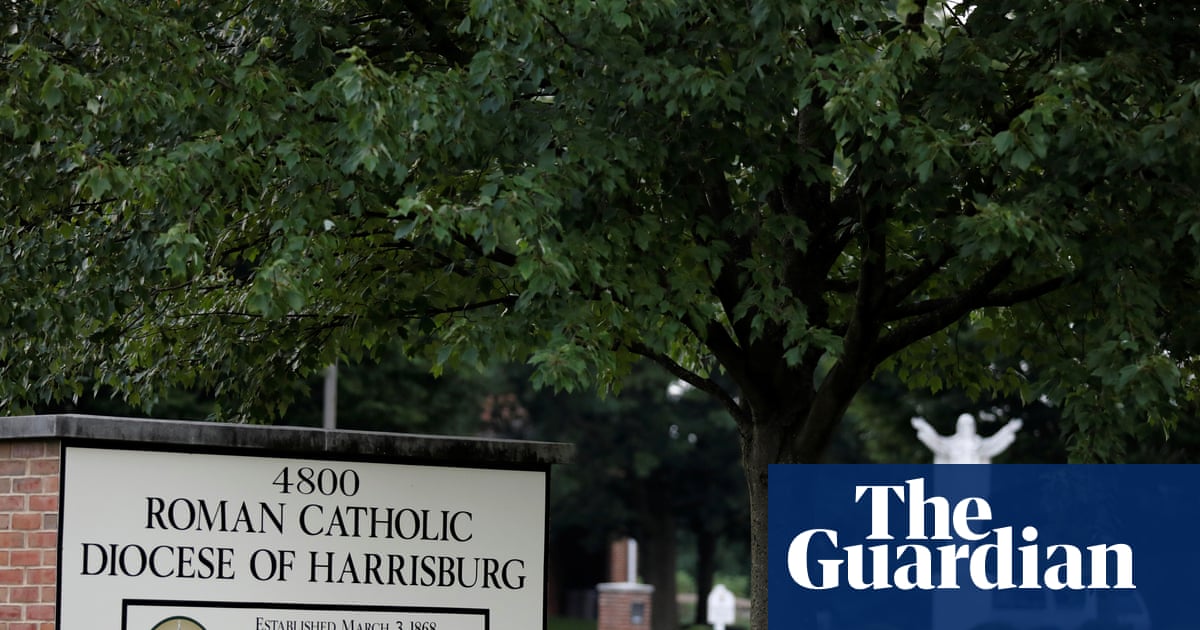A Mandria di Murtoli, Corsica
A hamlet of restored rural buildings in the Ortolo valley in Corsica reopened in June as A Mandria di Murtoli. Guests can stay in a former sheepfold, stable or barn, or one of five rooms in the main house. Three of the smaller properties have private pools, all rooms have terraces and there is a big shared pool. The buildings have been refurbished by Corsican craftspeople in a minimalist Mediterranean style, using local materials.
The neighbouring farm has also been revived around a model of subsistence farming: raising livestock, market gardening and growing traditional crops. The restaurant serves Sardinian-influenced food made with the ingredients grown on the estate and sourced from other local farms. There are just 30 seats, some on a terrace with a fire pit under olive and orange trees.
The hamlet is part of the wider Domaine de Murtoli, which has three other places to eat – a traditional Corsican restaurant, a beachfront spot and the Michelin-starred La Table de la Ferme – and offers wine-tasting. It is about 9 miles north to Sartène, an ancient hill town, a few miles south to Erbaju beach, and a little further to the fortress town of Bonifacio.
Doubles from £229 B&B, amandriadimurtoli.com
Rastrello, Umbria, Italy
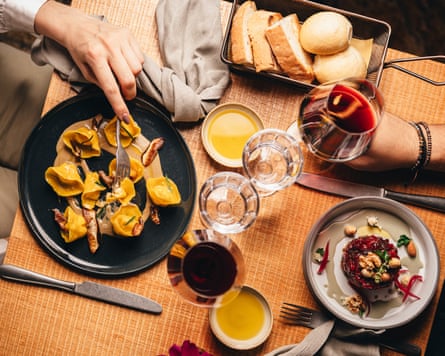
This boutique hotel is set in the renovated remains of a 500-year-old palazzo, surrounded by its own olive groves (which are hand-raked at harvest time; rastrello means rake in Italian). The palazzo is in the medieval village of Panicale, above Lake Trasimeno. This summer, the hotel opened a new garden annex, increasing the rooms from nine to 16, plus a dipping pool and wellness area. Rooms have wooden floors, stone walls and beams; some have lake views and balconies.
The restaurant, Cucina & Giardino, serves the farm’s award-winning extra-virgin olive oil, ingredients from its organic vegetable gardens and surrounding producers, and Umbrian wines. It has a terrace overlooking the lake and its own cookbook, also featuring villagers’ recipes. Guests can take olive oil-tasting workshops and cooking classes, and go on truffle-hunting walks and wine-tasting tours. The homegrown produce is also used in the spa treatments, with scrubs made from olive oil and crushed olive stones mixed with herbs and citrus, and in herbal teas such as lavender, lemon balm and wildflowers.
Panicale has a grape festival in September. There is a 40-mile walking and cycling path around the lake, which is the fourth biggest in Italy, with cafe stops at waterfront towns such as Passignano. Perugia, the capital of Umbria, is about 35km away – it has an enormous chocolate festival in November.
Doubles from £240 B&B, rastrello.com
Sibbjäns, Gotland, Sweden
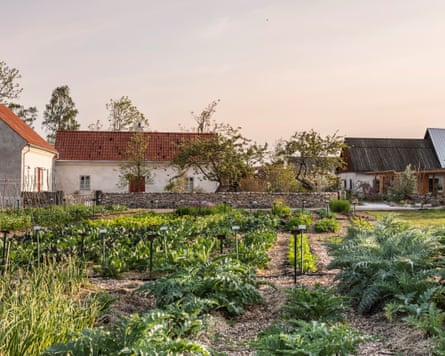
This small, family-run farm on the southern tip of Gotland opened a farm‑to-fork restaurant and hotel this summer. Guests stay in the 19th-century farmhouse, which has nine bedrooms, a library, a natural pool and a garden; there are simpler rooms in the adjacent farmstead. By next summer, there will be a sauna, outdoor gym and yoga barn. Visitors can help harvest tomatoes, learn about organic growing and composting, and meet the resident rabbits, chickens, pigs and sheep.
The restaurant serves a four-course set menu year-round and an additional a la carte menu in summer, featuring the farm’s own vegetables, meat and berries, plus local cheese and seafood. Dishes might include kohlrabi with lumpfish roe and a dill and butter sauce; grilled lamb with leeks, legumes and fresh garlic; and raspberries with emmer sponge cake and marigold ice-cream.
Gotland is a foodie hotspot whose specialities include saffron pancakes with dewberry jam, black truffles and purple asparagus, and juniper-flavoured ale. There is a food festival in late September and a truffle festival each November; microbreweries and a vineyard to visit; and more excellent restaurants such as Lilla Bjers, about 4 miles (7km) south of medieval Visby, the capital. The island has sandy beaches, sea stacks, ivy forests and more than 100 nature reserves.
Doubles from £210 B&B, dinner £62pp, sibbjans.se
Stone Barn, County Cork, Ireland
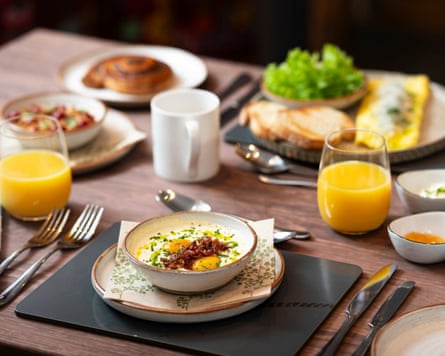
A restored farm building near Skibbereen in West Cork is now a small B&B with two double bedrooms and a converted wagon. The co-owner, Stuart Kearney, is from Northern Ireland but trained as a chef in Stockholm and serves Nordic‑influenced Irish food. Breakfast could be freshly baked bread and pastries, porridge with whiskey-soaked prunes, and home-smoked bacon with eggs laid by his own hens. Kearney cooks a seven-course tasting menu (every night except Wednesdays and Sundays) showcasing his own vegetables and produce from neighbours and local farmers. The menu changes daily but could include Skeaghanore duck breast or miso-cured cod.
The rooms also have a Scandi style; there is a cosy sitting room with a wood burner; and a hot tub. Guests can take walks along the Sheep’s Head Way, and Kearney can recommend cycling routes. Skibbereen, a 12-minute drive away, has pubs and restaurants, a Saturday market and Fields, which opened in 1935 and is said to be the best supermarket in Ireland. Just beyond is Lough Hyne, a salt-water lake – its bioluminescent algae can be seen on a night kayaking trip. Other day trip options include nearby fishing villages such as Baltimore, which has ferries to Sherkin Island and Cape Clear Island.
Doubles from £142 B&B, dinner £65pp, sawdays.co.uk
after newsletter promotion
Quinta Camarena, Alentejo, Portugal
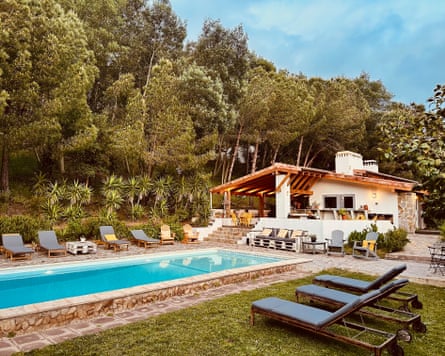
Vera and Cam Camarena have turned a farmhouse in Cercal, a coastal town in Costa Vicentina, south-west Portugal, into an eco retreat. They have backgrounds in fashion (Vera, from Porto) and photography (Cam, from Los Angeles), and the restoration looks great: original features, calming colour schemes and locally made textiles and artworks. Food and wine is part of the package – the couple serve healthy brunches and dinners made with Alentejo produce, run cheese- and jam-making workshops and cooking classes, and organise visits to artisanal bakeries, wineries, organic farms and local markets. They also run a three-night sustainable food and wine retreat, and a “not so serious” surf, yoga and wine retreat.
The newest rooms are in the forest, a few minutes’ walk away from the communal areas, and are multilevel with terraces for sunset views. There are also rooms and apartments in the old country houses; the whole property sleeps 23 (no children under 12) and is pet-friendly.
There are gardens with vegetable plots; a pool, gym, yoga studio and sauna; and hiking trails. Cercal is a short walk away, and it is a 15-minute drive to surf beaches. Lisbon is two hours by car.
Doubles from £95 B&B, quintacamarena.com
Penrhiw Farm, Pembrokeshire
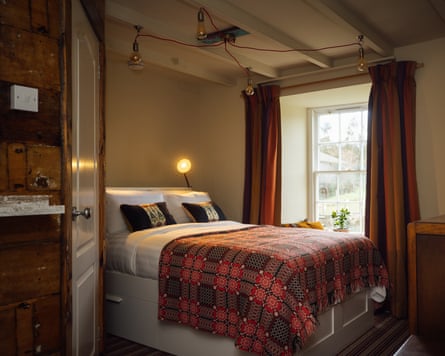
Chef Alan Latter was born and raised on Penrhiw Farm, near Goodwick in north Pembrokeshire, and, after years working in hotels and restaurants, he has returned to run the farm with his partner, Philip. The 17th-century farmhouse is now a four-bedroom B&B, and there is a glamping option in a converted horsebox.
Latter cooks a Welsh breakfast every morning, and offers a fixed two-course kitchen supper every other evening (May to September; on request, October to April). Ingredients are homegrown or locally sourced, including vegetables from the garden; eggs, milk and cheese from the 80-hectare (200-acre) organic farm; and Pembrokeshire meat and seafood.
The menu changes daily – perhaps hake fillet with a herb crust, crushed peas, runner beans, pommes anna and hollandaise sauce, followed by a vanilla Basque cheesecake with blood orange and rhubarb compote. There is a small selection of wines and Welsh beers, or guests are welcome to bring their own.
The rooms are furnished with furniture repurposed from the Dorchester hotel in London, and decorated with Welsh artworks, blankets and ceramics. The big sitting room has an open fire and lots of books, there are beautiful gardens and the farm is on the Pembrokeshire Coast Path. Sustainable energy comes from an air-source heat pump, solar panels and a wind turbine.
Doubles from £115 B&B, dinner £28pp, penrhiwfarm.co.uk

 1 month ago
62
1 month ago
62




